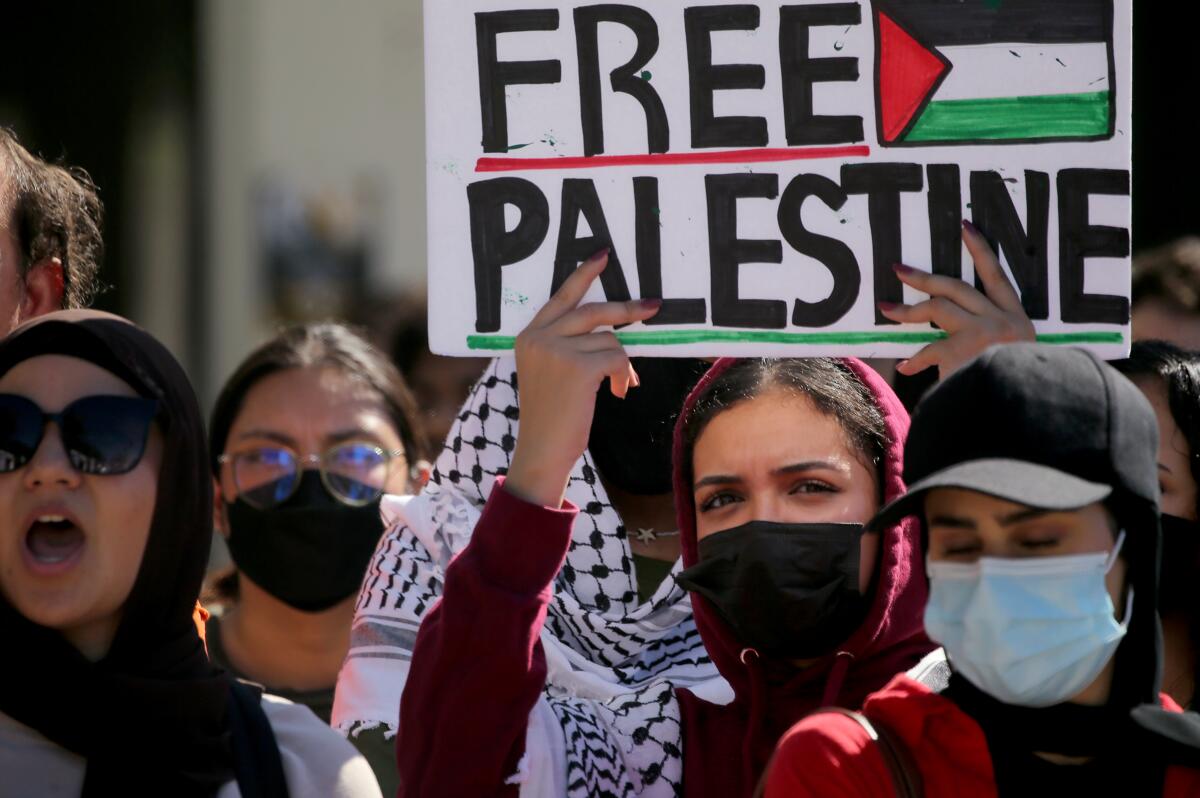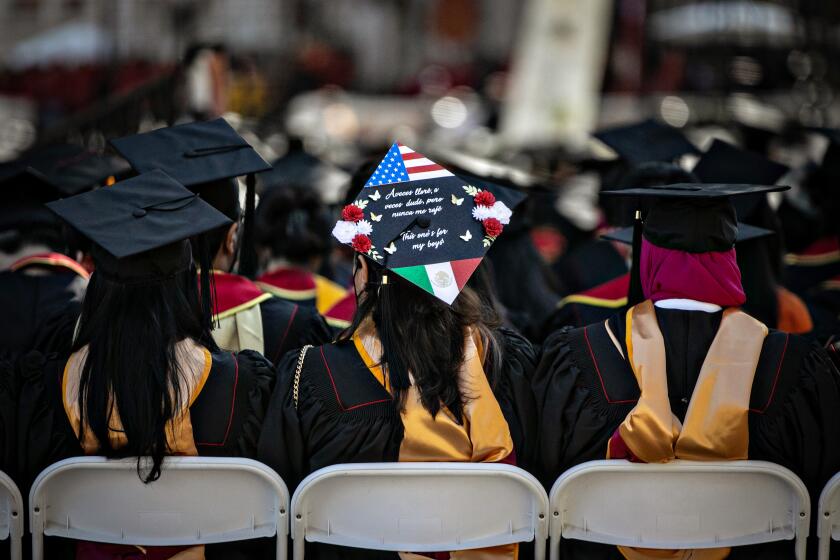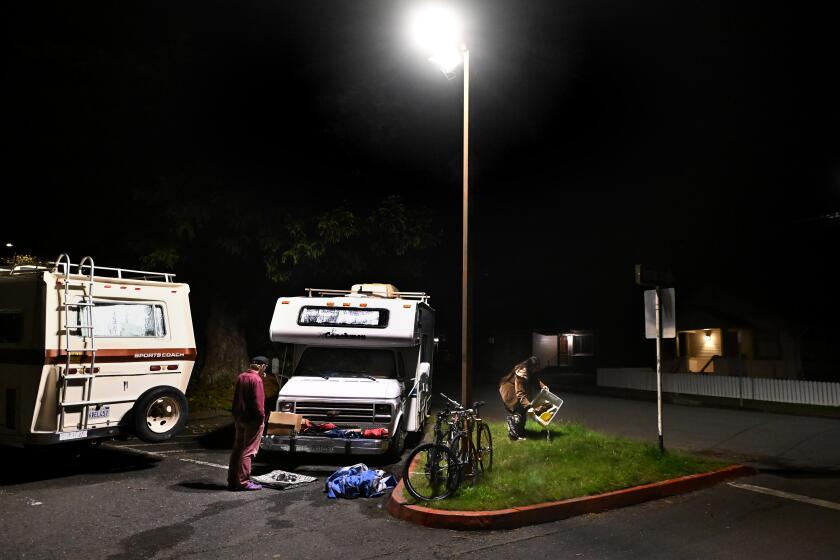Free speech or discrimination? Colleges need help drawing the line

- Share via
These are bitter and confusing times at many U.S. colleges and universities. For some students, campuses have come to feel like hostile and sometimes even threatening places. Complaints of civil rights violations in higher education have increased more than tenfold among both Jewish and Muslim/Arab students after the Oct. 7 Hamas attack and subsequent retaliation by Israel.
There are a few ways the federal government can respond. Unhelpfully, members of Congress held hearings in the fall to harangue the presidents of Harvard, MIT and Penn for hours until they unwisely said that context is important in determining whether a call for genocide of Jews would violate their schools’ rules.
Some lawmakers are pushing for noxious bills such as HR 3773. The legislation, which has passed the House, would defund federal financial aid programs at universities that “authorize” antisemitic events on campus — which could potentially be interpreted to include a pro-Palestinian group that is exercising its 1st Amendment right to protest Israel’s actions. The bill doesn’t offer any such protection to Muslim students or other groups.
The strife on campuses over the Israel-Gaza war comes amid a culture of outrage over issues. Universities should convene open discussion, not take sides.
Then there’s a more productive path taken by the U.S. Department of Education to have its Office for Civil Rights investigate complaints of antisemitism and Islamophobia at multiple campuses. Instead of political grandstanding, federal officials will examine whether the schools have violated Title VI of the Civil Rights Act, which prohibits discrimination on the basis of race, color or national origin at any institution receiving federal funding. At least 15 colleges (the number changes as the office adds more schools) have come under scrutiny, including several in California: UCLA, UC San Diego, Stanford University, UC Berkeley law school and Santa Monica College.
The civil rights arm of the Education Department holds enormous power over colleges because almost all of them, including private ones, receive some federal funding either for research or financial aid. Under then-President Obama, the civil rights office upended, mostly in constructive ways, how higher education treats allegations of sexual assault on campus.
Universities were never meant to be merely career-prep schools. But more universities are shrinking non-STEM departments.
The public reacted with understandable dismay when the presidents of prestigious universities failed to make clear that calls for genocide against any group were unacceptable to their schools. But in truth, law and society have placed college administrators in a difficult position and they do have to take context into account. The 1st Amendment, at least at public schools, allows only rare restrictions on free speech in the case of incitement to illegal actions — such as violence against a protected group.
Free speech rights still take precedence if one set of students makes another group feel uncomfortable, but what about when that group feels frightened and in danger, even if no direct threat has been made? Administrators may find themselves in trouble either way they go.
Homeless college students who live in their cars need safe overnight parking. How tough can that be?
Colleges such as Cal Poly Humboldt resist allowing overnight parking for students who live out of their cars. Long Beach City College shows a better way.
Federal investigators will have some thorny cases to untangle, and others that seem fairly clear. At Wellesley College, an all-women’s school in Massachusetts, resident assistants — students who are paid to oversee the welfare of other students in their dormitories — sent out messages reportedly saying that “there should be no space, no consideration, and no support for Zionism within the Wellesley College community.”
A civil rights complaint by the Brandeis Center, a Jewish civil rights organization, followed, saying that Wellesley leadership failed to move swiftly and decisively against a message that made Jewish students feel like pariahs in their own dorm. The college’s president said in a statement the assistants had apologized. Was that enough, considering that students now know how those assistants feel? Should the assistants have been fired? Were they coerced into apologies, a possible infringement on their right to free speech? It’s a hard line to discern.
Santa Monica College’s choice was clearer: A student council in October refused official club status to students supporting Israel. College administrators overrode that decision and were thanked by the students for “their swift response to our concerns.” It was the appropriate response. Colleges cannot prevent discriminatory actions. They can only respond.
The Office for Civil Rights can bring much-needed sanity to the situation. Instead of looking to discipline schools, its goal should be to lead them out of this confusion and lay down clear guidelines on how to protect students from discrimination while also protecting speech.
More to Read
A cure for the common opinion
Get thought-provoking perspectives with our weekly newsletter.
You may occasionally receive promotional content from the Los Angeles Times.












